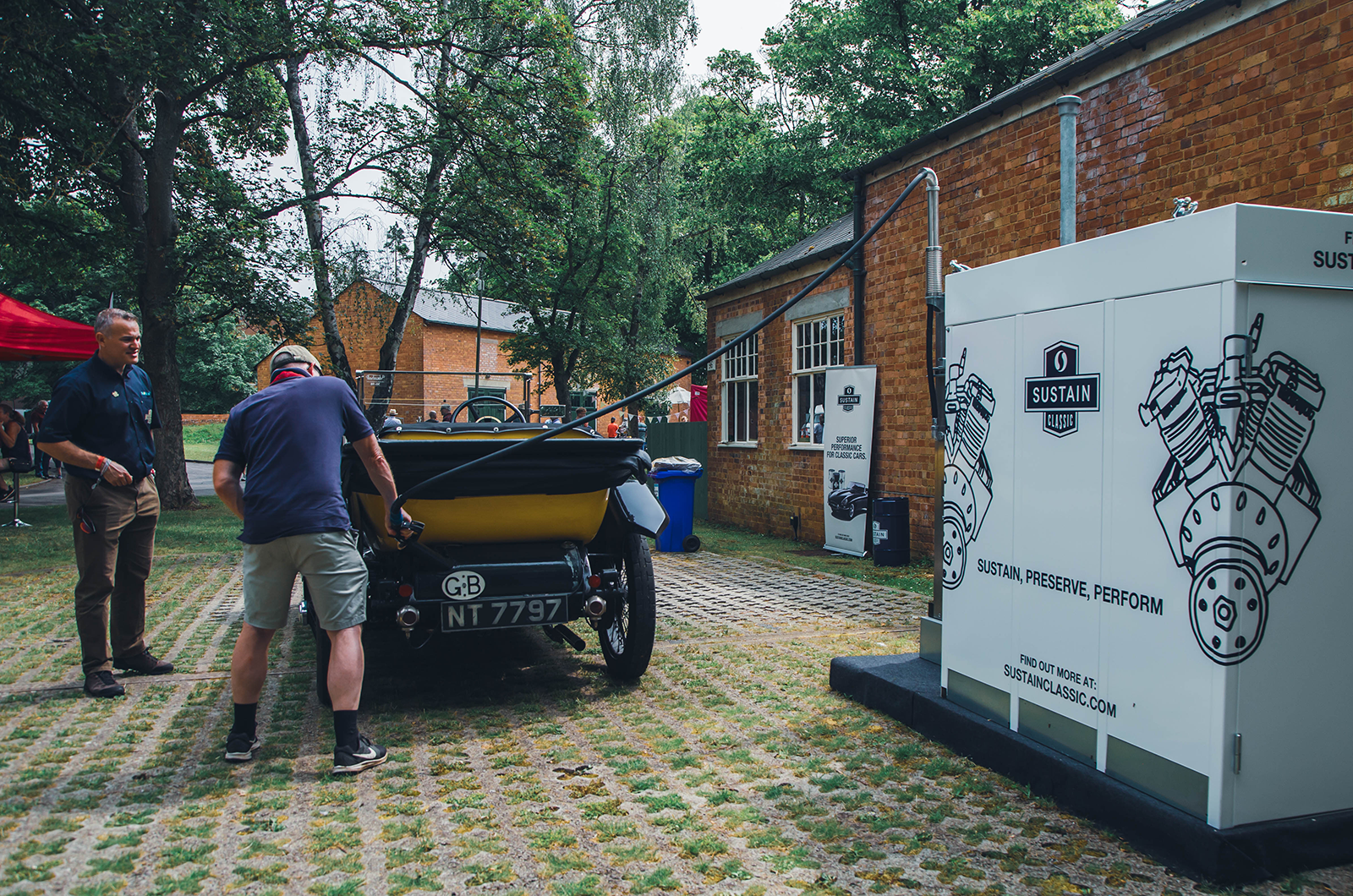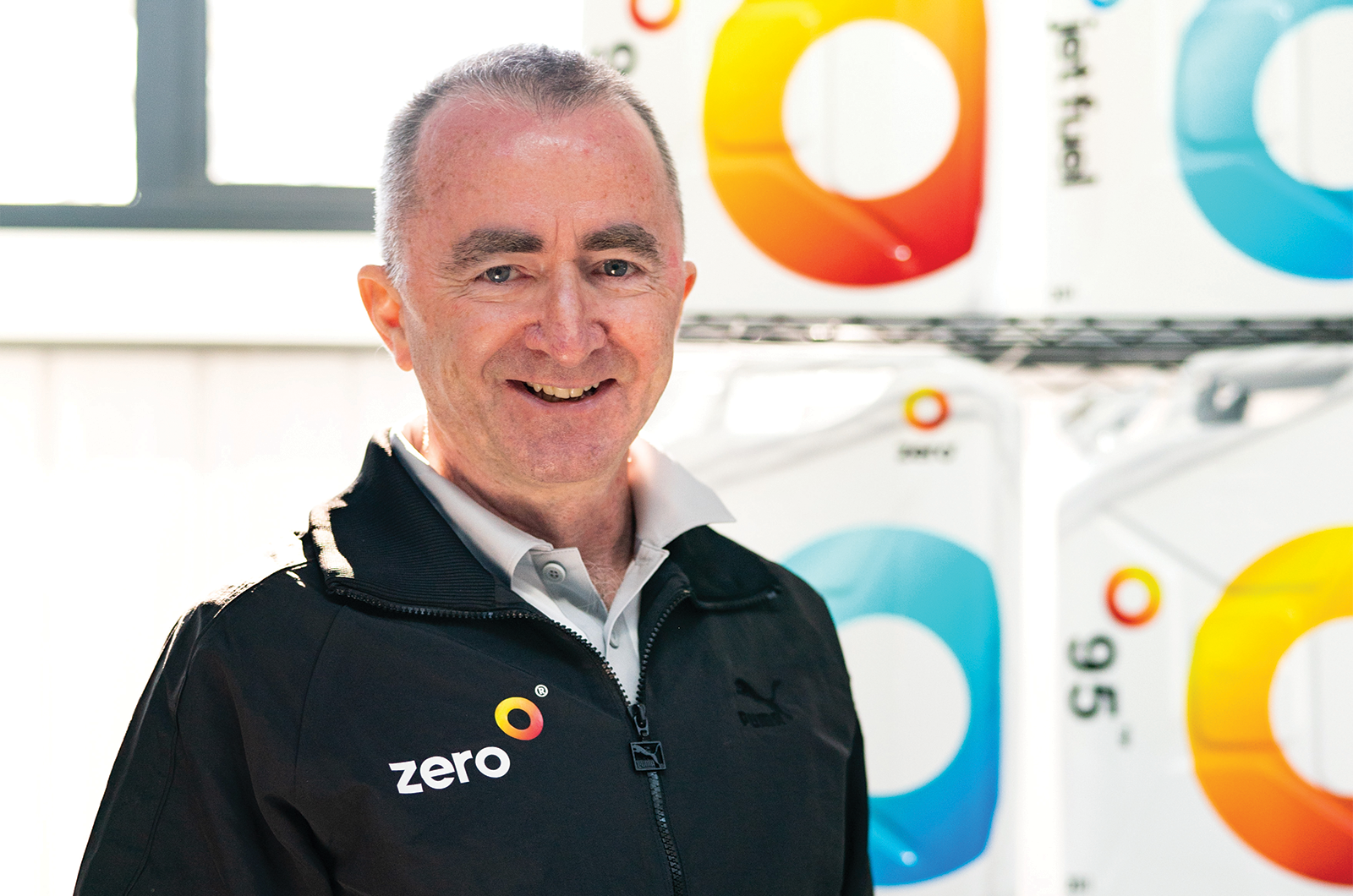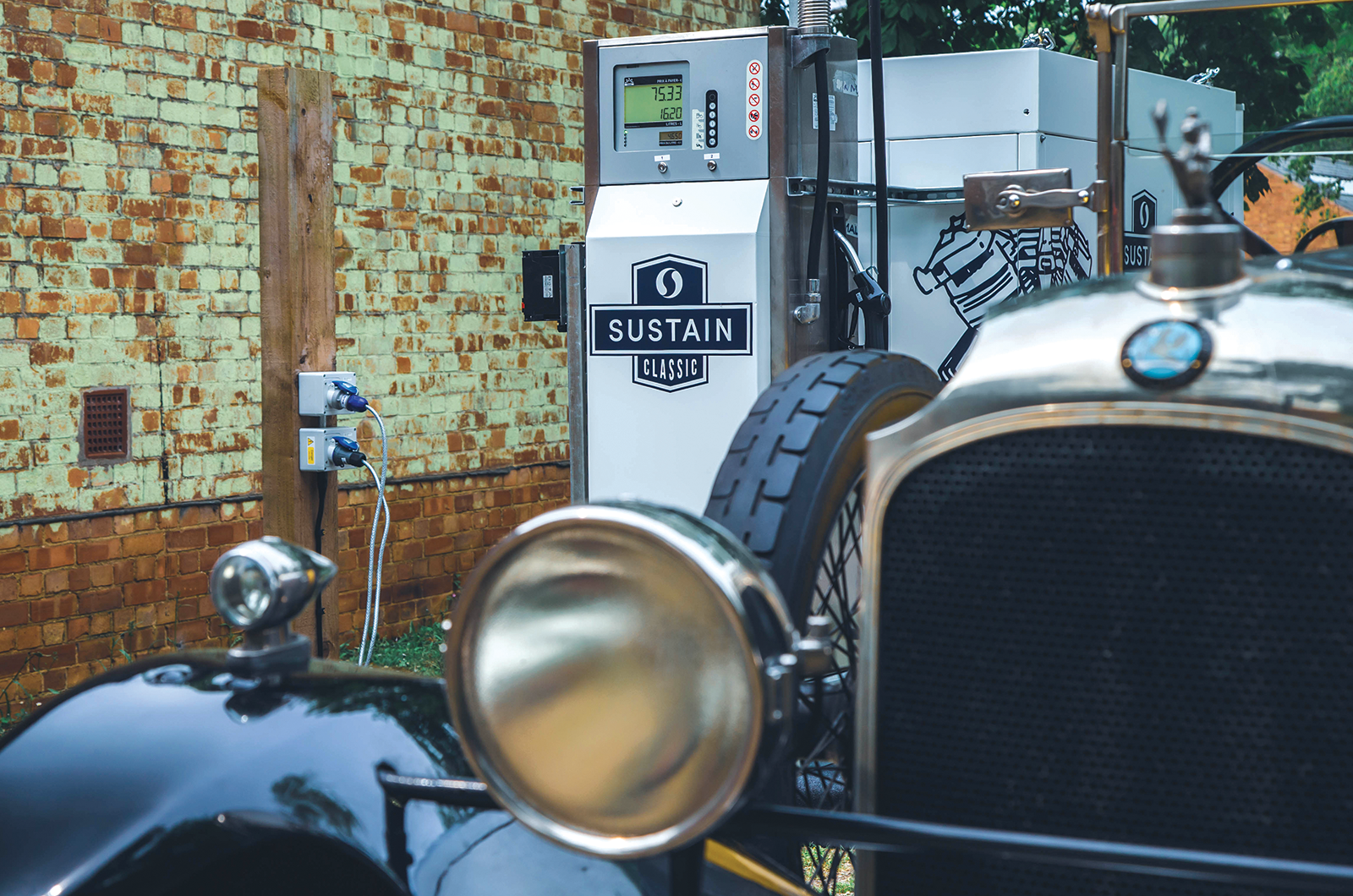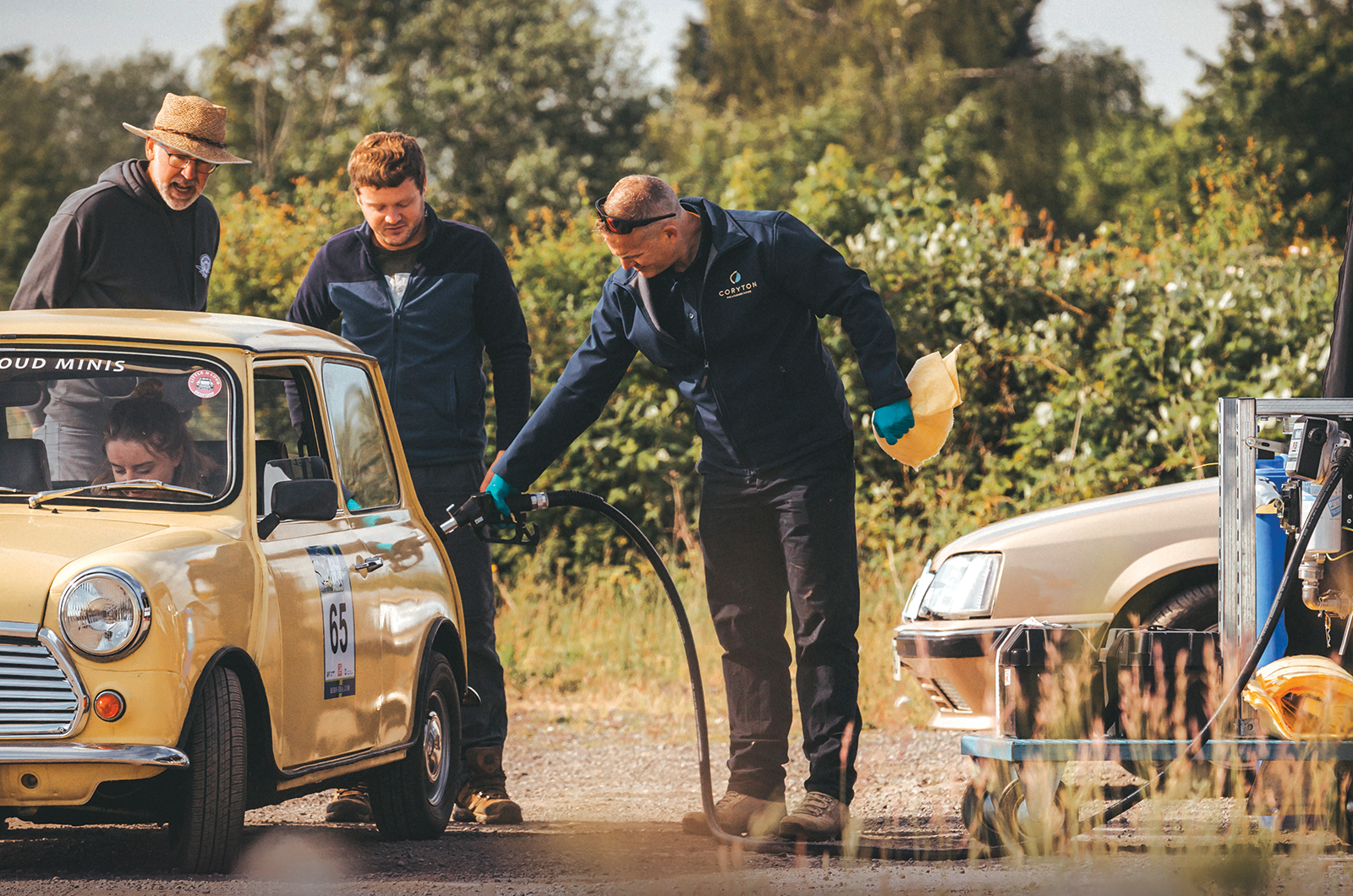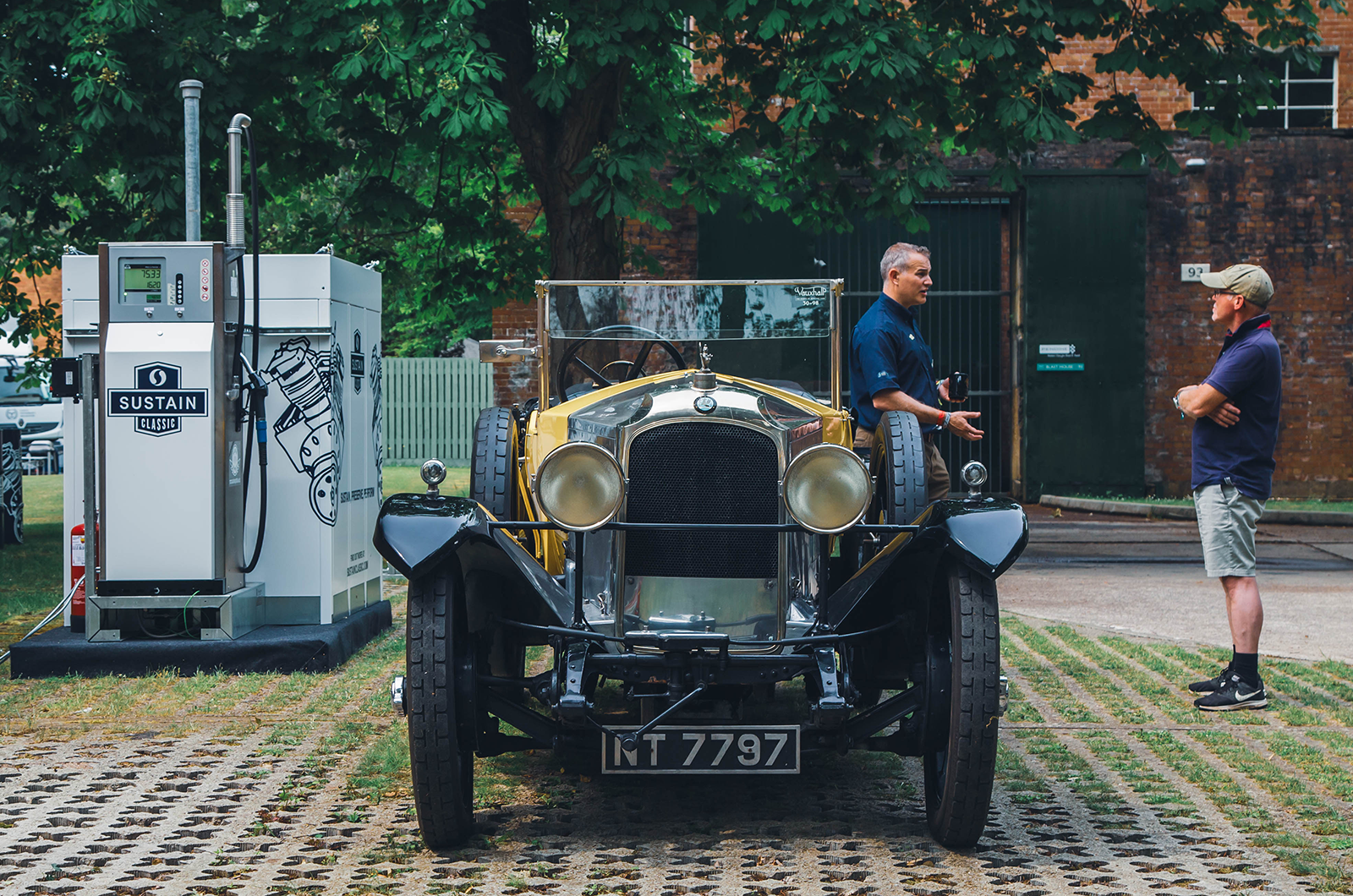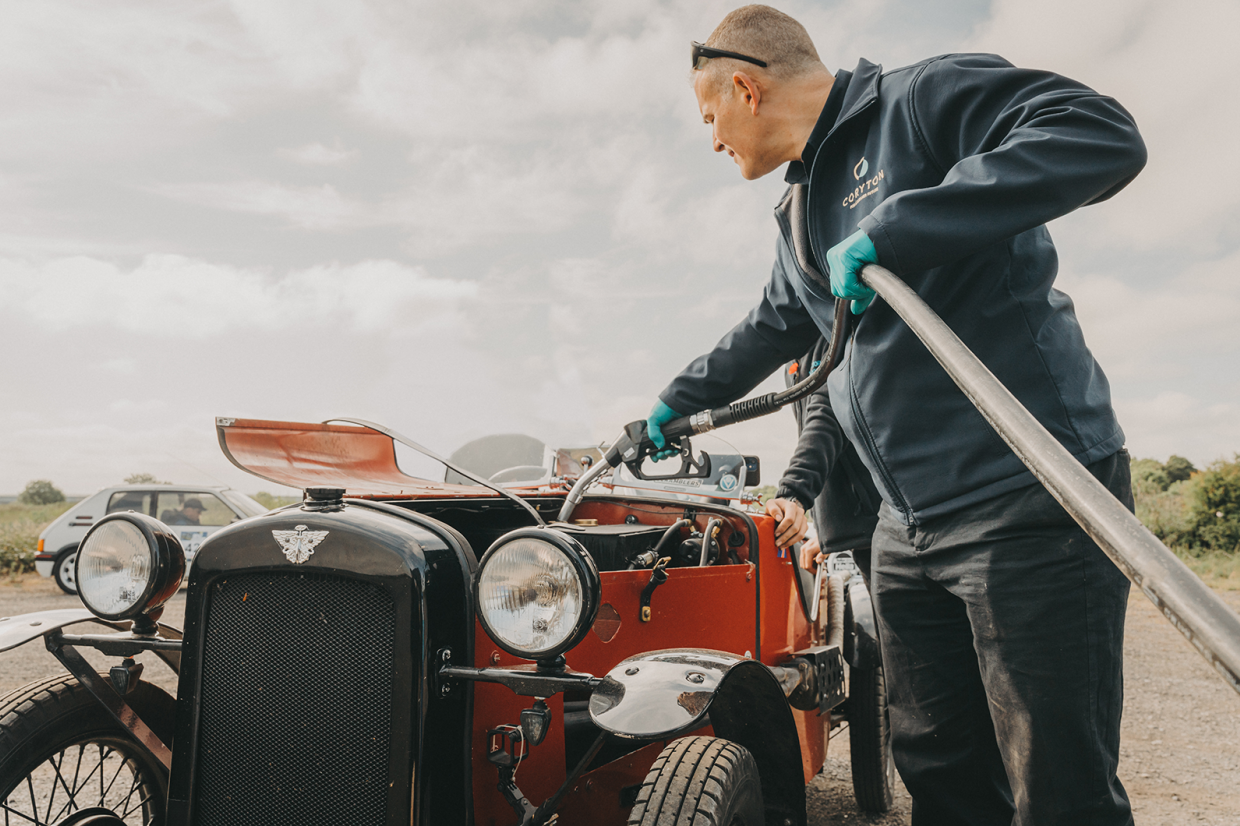
Few topics have dominated the classic car industry’s agenda in recent times more than the pressure to reduce carbon dioxide emissions, and the impact that doing so will have on owners and classic-related businesses alike.
Much of the debate has centred on politicians’ and the public’s perception of classic cars as high-polluting vehicles that are counter to the UK Government’s pathway to net zero by 2050.
This despite the average annual mileage of the 874,000 classic cars registered or on SORN in the UK (latest figures, from October 2022) being 1200 miles and representing a mere 0.22% of Britain’s total transport emissions, according to a report by the Federation of British Historic Vehicle Clubs (FBHVC).
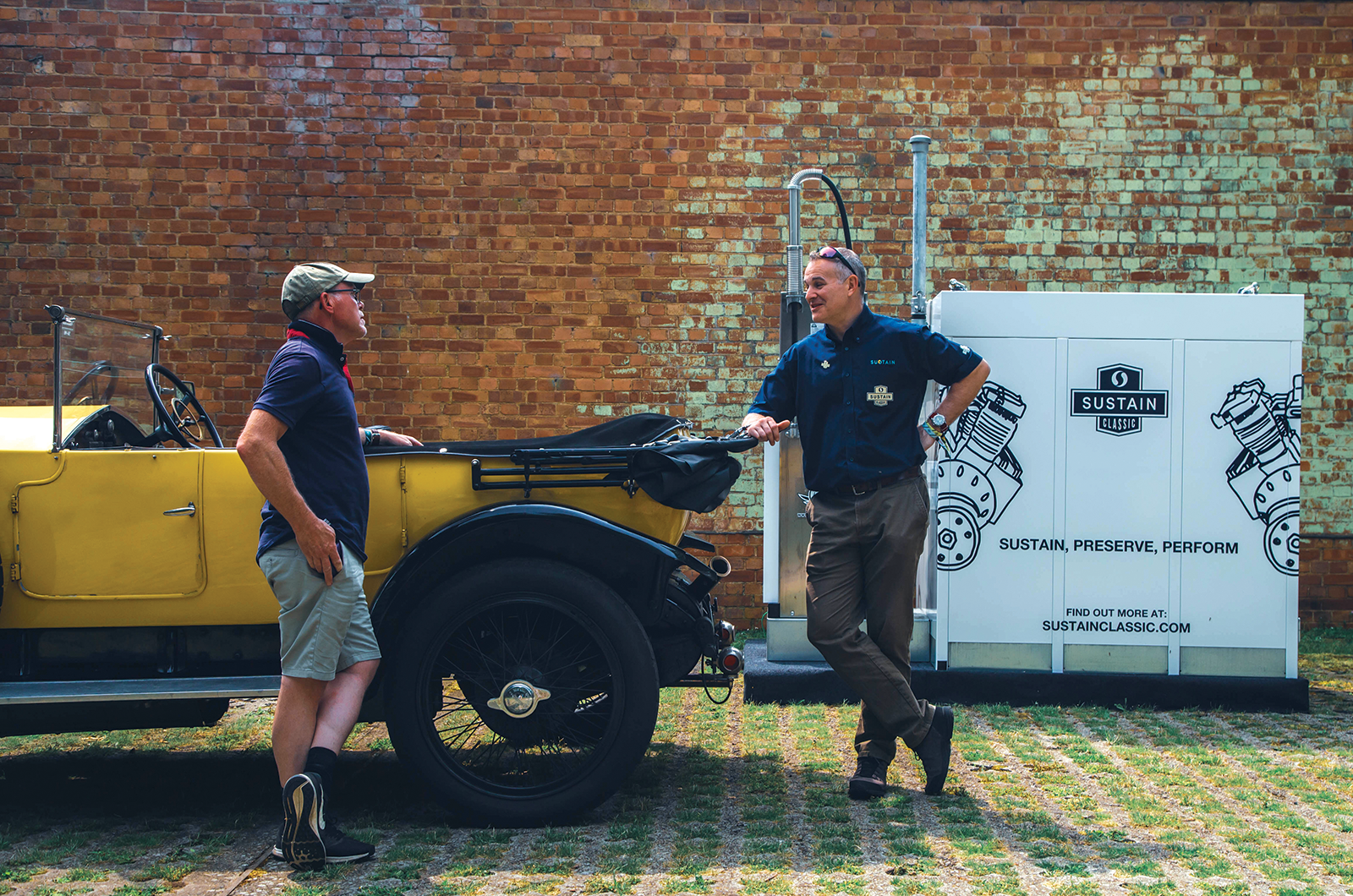
David Richardson (on right) from Coryton cites the wide range of sources for biofuel as a major advantage
Equally, there is a consensus around the industry that it should be making every effort to mitigate the effect of its carbon footprint, and one of the emerging key enablers is sustainable fuel.
This can be separated into two main groups: biofuels, and synthetic or e-fuels.
E-fuels are produced by extracting carbon dioxide and water from the environment.

